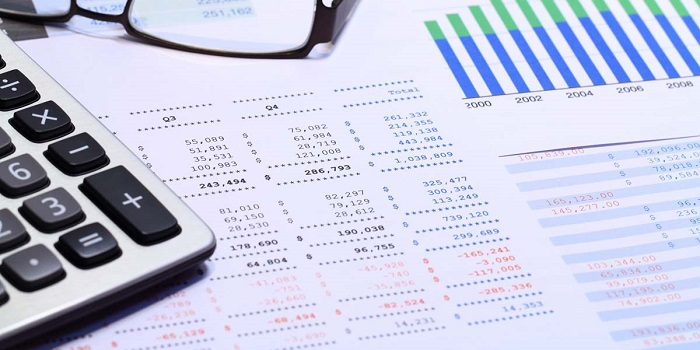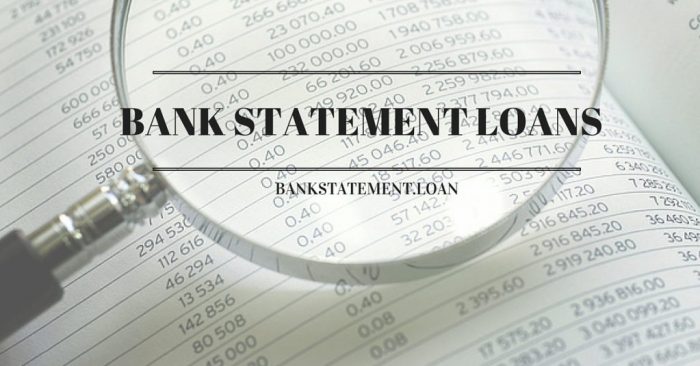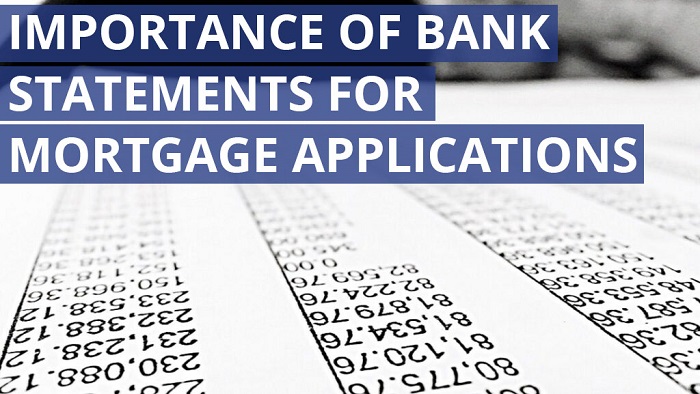Bank statement loans are a unique financing option for self-employed individuals and small business owners who may not have the traditional documentation required for a standard loan. These loans allow borrowers to use their bank statements as proof of income, making it easier for them to qualify. One key advantage of bank statement loans is the flexibility they offer in terms of income verification, which can be particularly beneficial for entrepreneurs with fluctuating incomes. This alternative lending option provides an opportunity for those who may not fit the mold of a typical borrower to access much-needed capital for personal or business expenses.
While bank statement loans provide greater flexibility, they often come with higher interest rates and stricter terms compared to conventional loans. Borrowers should carefully weigh the benefits against the potential drawbacks before committing to this type of financing. Additionally, maintaining accurate and organized financial records is essential when applying for a bank statement loan, as lenders will scrutinize these documents to assess creditworthiness. Despite its challenges, the accessibility and adaptability of bank statement loans make them an attractive solution for self-employed individuals seeking financial support without compromising on their entrepreneurial pursuits.
What is a Bank Statement Loan?

A bank statement loan is a type of mortgage that allows self-employed individuals or business owners to qualify for a home loan using their personal or business bank statements as proof of income. Unlike traditional mortgages that rely on W-2 forms and tax returns, bank statement loans are designed to accommodate those with non-traditional income sources. This can be highly beneficial for entrepreneurs, freelancers, and small business owners who may have fluctuating incomes or irregular pay schedules.
One key advantage of a bank statement loan is its flexibility in assessing income. Rather than being limited by traditional employment documentation, applicants can leverage their consistent cash flow demonstrated through bank statements to qualify for the mortgage they need. Additionally, these types of loans often require less paperwork compared to conventional mortgages, making the application process more streamlined and accessible for self-employed individuals. As the gig economy continues to grow and more people pursue non-traditional career paths, bank statement loans provide an essential opportunity for aspiring homeowners to achieve their goals without conforming to traditional income verification methods.
Bank Statement Loan Program Information
In the world of mortgage lending, traditional income documentation requirements have long been a significant barrier for self-employed individuals and those with non-traditional sources of income. However, a financial innovation known as bank statement loans has emerged as a game-changer in the industry, offering an alternative path to homeownership for these underserved borrowers. By considering an applicant’s bank statements rather than tax returns or pay stubs, this type of loan opens doors for entrepreneurs, freelancers, and other unconventional earners who may struggle to meet the strict criteria set by traditional mortgage lenders.
2. Imagine being able to access financing for your dream home without having to navigate through a mountain of paperwork or facing rejection due to atypical income streams. Bank statement loans represent a shift towards greater inclusivity in the housing market, leveling the playing field for those whose financial profiles don’t neatly fit into standard molds. With their potential to empower a wider range of aspiring homeowners, these loans have sparked considerable interest among both borrowers seeking flexibility and lenders aiming to tap into new customer segments. Join us as we delve into the nuances of bank statement loans and explore how they are reshaping the landscape of mortgage lending today.
Advantages of Bank Statement Loans
- Bank statement loans for self employed help business owners and 1099 contractors to qualify for a mortgage
- Bank statement lenders allow you to qualify by supplying them with your bank statements only
- Mortgage rates are only slightly higher than conventional loans
- LTV up to 90%
- DTI up to 50%
- Low credit scores are permitted
- Recent bankruptcy or foreclosures are permitted
- NO PMI or Mortgage Insurance
- Very competitive rates
Bank Statement Loan Pros and Cons
Pros
- Helps self employed borrowers to qualify for a mortgage without using tax returns to prove income
- Can be done in some instances with only 10% down
- Bank statement mortgage rates are just slightly higher than conventional rates
- Up to 50% DTI – Debt to income depending upon your scenario and lender
- Typically no pre-payment penalties
- Available in all 50 states
Cons
- You need to be self employed for a minimum of 2 years
- If your credit score is extremely low, it may result in a higher down payment
- Rates are slightly higher than conventional but not much more
- Not all lenders offer bank statement loans
- Not available in government loans such as FHA, VA or USDA
Bank Statement Loan Requirements

Bank statement loans offer a unique opportunity for individuals who may not have traditional W-2 income to secure a mortgage. Instead of relying on tax returns or pay stubs, these loans consider the applicant’s bank statements as proof of income. However, securing a bank statement loan requires meeting specific requirements. Generally, lenders will look for at least 12 months of consistent deposits in the applicant’s bank account to demonstrate their ability to repay the loan. Additionally, a minimum credit score is usually required, often higher than for traditional mortgage applications.
Moreover, applicants may need to provide additional documentation such as profit and loss statements if they are self-employed or have irregular income sources. Lenders also typically require a larger down payment compared to conventional mortgages. Understanding and meeting these requirements is crucial for those seeking a bank statement loan in order to increase their chances of approval and secure favorable terms. While these loans provide an alternative path to homeownership for many individuals, it’s important for applicants to be prepared and fully informed about the process and expectations when applying for this type of financing.
Bank Statement Mortgage Lenders
Bank statement mortgage lenders play a crucial role in providing opportunities for individuals who may not have the traditional documentation required for a home loan. These lenders base their lending decisions on an applicant’s bank statements, allowing self-employed individuals or those with non-traditional income sources to qualify for a mortgage. By considering the cash flow and account balances reflected in bank statements, these lenders offer a more flexible approach to assessing creditworthiness and risk.
In today’s dynamic financial landscape, bank statement mortgage lenders have emerged as key players in promoting financial inclusion and expanding access to homeownership. Their willingness to look beyond standard income verification requirements empowers diverse segments of the population, such as freelancers, entrepreneurs, and gig workers, to pursue their homeownership dreams without facing undue barriers. This alternative approach not only benefits borrowers but also reflects the evolving nature of employment and income patterns in modern society. Ultimately, bank statement mortgage lenders enable a more inclusive housing market by recognizing the value of various forms of income and fostering greater financial inclusivity.
Bank Statement Loan Interest Rates

Bank statement loan interest rates are a crucial aspect for self-employed individuals seeking alternative financing options. Unlike traditional mortgage loans, bank statement loans cater to applicants who may not have W-2 forms or tax returns to verify their income. While interest rates for these loans can vary, they generally tend to be slightly higher than conventional mortgages. However, the flexibility and accessibility of bank statement loans may outweigh the higher interest rates for many self-employed borrowers.
The fluctuation in bank statement loan interest rates can also be influenced by factors such as credit score, down payment percentage, and financial history. It’s important for prospective borrowers to carefully compare offers from different lenders to secure the most favorable terms. Despite potentially higher interest rates, the ability of bank statement loans to consider alternative forms of income documentation make them a viable option for many self-employed individuals looking to achieve their homeownership dreams.
One Month Bank Statement Loan Program
The One Month Bank Statement Loan Program offers a flexible and accessible option for self-employed individuals or small business owners who may not have traditional income documentation. Instead of requiring tax returns or pay stubs, this program allows applicants to use their monthly bank statements to demonstrate their income and financial stability. This innovative approach can provide opportunities for those with fluctuating incomes or uneven cash flow to access the funding they need without the usual hurdles.
By embracing a more holistic view of an applicant’s financial situation, the One Month Bank Statement Loan Program recognizes that traditional income documentation doesn’t always reflect a borrower’s true financial stability. This approach opens doors for entrepreneurs, freelancers, and gig workers who may have multiple revenue streams or irregular payment schedules. As the gig economy continues to grow and self-employment becomes increasingly common, this forward-thinking loan program is poised to become an essential tool for many individuals seeking financing options that align with their unique financial circumstances.
Bank Statement Loan Related Questions
1. FAQ: Do I have to be self-employed to get a bank statement loan?
Answer: No, you do not have to be self-employed to qualify for a bank statement loan. Many traditional employees can also benefit from this type of loan.
2. FAQ: What is a bank statement loan?
Answer: A bank statement loan is a type of mortgage that uses the borrower’s personal or business bank statements to verify income instead of traditional documentation.
3. FAQ: How do I qualify for a bank statement loan?
Answer: To qualify for a bank statement loan, you typically need to have a good credit score, sufficient cash reserves, and a stable financial history.
4. FAQ: Can I use my business bank statements for a personal bank statement loan?
Answer: Yes, if you are self-employed or have significant income from business activities, you can use your business bank statements to apply for a personal bank statement loan.
5. FAQ: Are there specific requirements for the length of time I need to be self-employed to get a bank statement loan?
Answer: While some lenders may require at least two years of self-employment history, others may be more flexible with their requirements.
6. FAQ: Will my employment status affect the interest rate on a bank statement loan?
Answer: Generally, your employment status will not directly impact the interest rate on a bank statement loan; however, factors such as credit score and financial stability may influence the rate offered.
7. FAQ: Can I use bonus income or commissions as part of my qualifying income for a bank statement loan?
Answer: Yes, many lenders will consider bonus income and commissions as part of your qualifying income when applying for a bank statement loan.
8. FAQ: How does the application process differ for self-employed individuals compared to traditionally employed borrowers?
Answer: The application process may differ slightly for self-employed individuals in terms of document requirements and income verification methods, but both groups can still apply for and obtain a bank statement loan.
 london finance
london finance
